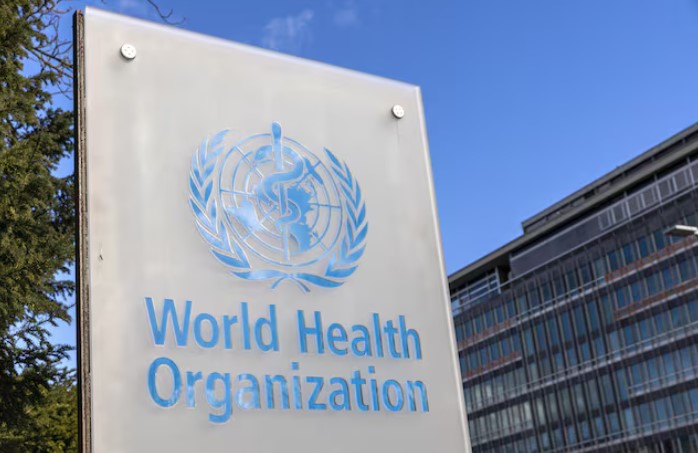Due to an uptick in cases of COVID-19 and other pathogens in recent weeks during the northern winter, the director general of the World Health Organization (WHO), Tedros Adhanom Ghebreyesus, recommended through his account on the social network , that the population continues with the use of masks and the booster doses of the vaccine are applied.
“Respiratory diseases such as COVID-19, flu and other pathogens have increased in many countries during these weeks and this is expected to continue after the recent holidays,” Tedros said in a post.
“As individuals, be sure to get tested and seek care when necessary because COVID-19 treatments can prevent serious illness and death. “Continue to wear masks, with ventilation and distancing to reduce exposure, and make sure you and your loved ones are up to date with your COVID-19 and flu vaccines,” the WHO head added on his X account. .
On the other hand, he indicated that governments must provide “access to reliable tests, treatments and vaccines, especially to those who are most at risk of suffering serious infection.” At the same time, he urged them to maintain surveillance, sequencing and reporting to follow the evolution of the SARS-CoV-2 virus, which causes COVID-19, and “provide clear messages about the risks and measures to reduce the risk.” risk for their populations”
The head of the United Nations health agency attached with his message a document dating from 2023 on the WHO measures in relation to COVID-19 for governments to take when appropriate. Among them are:
A. States Parties are recommended to review and implement, as appropriate, national COVID-19 plans and policies that take into account the WHO COVID-19 Strategic Preparedness and Response Plan from April 2023 to April 2025. And actions are suggested to:
• Incorporate lessons learned from national and subnational assessments of the COVID-19 response into COVID-19-related plans and policies.
• Sustain national and subnational capacities, as appropriate, for preparation, prevention and response to COVID-19. Capacity gains achieved during the Public Health Emergency of International Concern (PHEIC) associated with the COVID-19 pandemic should be leveraged to prepare for current and future events of both COVID-19 and other infectious pathogens with epidemic and pandemic potential.
B. States Parties are recommended to maintain collaborative surveillance for COVID-19, in order to provide a basis for situational awareness and risk assessment and the detection of significant changes in the characteristics of the virus, its spread, the disease severity and population immunity. Actions are recommended to:
• Incorporate information from different COVID-19 monitoring systems to ensure early warning signs are detected and prepare to expand and adapt systems as necessary.
C. States Parties are recommended to continue reporting COVID-19 data, in particular mortality data, morbidity data, SARS-CoV-2 genomic sequences with metadata, and vaccine effectiveness data to WHO or in open sources so that WHO can understand and describe the epidemiological situation and variant landscape, conduct global risk assessments, and work with relevant WHO expert networks and advisory groups. Actions are recommended to:
• Report or publish data on the burden and impact of COVID-19, including hospitalization, intensive care unit and mortality data, to WHO.
• Maintain public reporting of sequences with metadata and support the establishment of the WHO Global Coronavirus Laboratory Network (CoViNet) to, among other things, support the future selection of strains for updated vaccines.
• Report epidemiological and laboratory information in a timely manner to regional or global platforms established by WHO, through RespiMart and the expanded activities of the Global Influenza Surveillance and Response System (GISRS).
D. States Parties are recommended to continue offering the COVID-19 vaccine based on both the recommendations of the WHO Strategic Advisory Group of Experts on Immunization (SAGE) and national priorities. Actions are recommended to:
• Improve efforts to increase COVID-19 vaccination coverage for all people in high-priority groups.
• Actively address issues of misinformation, vaccine acceptance and demand with communities and healthcare providers.
E. States Parties are recommended to continue to initiate, support and collaborate on research to generate evidence for the prevention and control of COVID-19, with a view to reducing the disease burden of COVID-19. It is suggested to continue with primary research and systematic research reviews, including, but not limited to, the following topics:
•Understand the transmission patterns of SARS-CoV-2 and the impact of weather, seasonality and behavior.
•Development of vaccines that reduce transmission and have broad applicability.
•Better treatment of severe cases of COVID-19.
•Development of therapeutics for COVID-19.
•Understand the origins of SARS-CoV-2.
•Understand the breadth and duration of immunity after infection, vaccination, or both, and cross-reactivity with other coronaviruses.
F. States Parties are encouraged to continue providing optimal clinical care for COVID-19, appropriately integrated into all levels of health services, including access to proven treatments and measures to protect health workers and patients. caregivers, as appropriate.
G. States Parties are encouraged to continue working to ensure equitable access to safe, effective and quality-assured medical countermeasures for COVID-19. They are between them:
• Support and improve equitable access to safe, effective and quality diagnostics, therapies and vaccines
• Strengthen regulatory authorities to support the efficient and effective authorization of diagnostics, therapeutics and vaccines within national regulatory frameworks
















